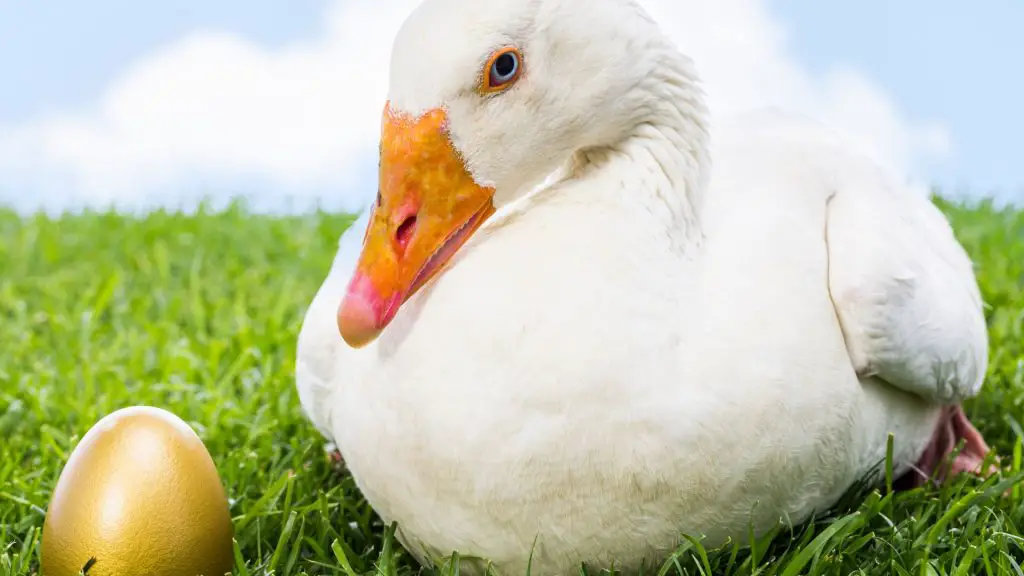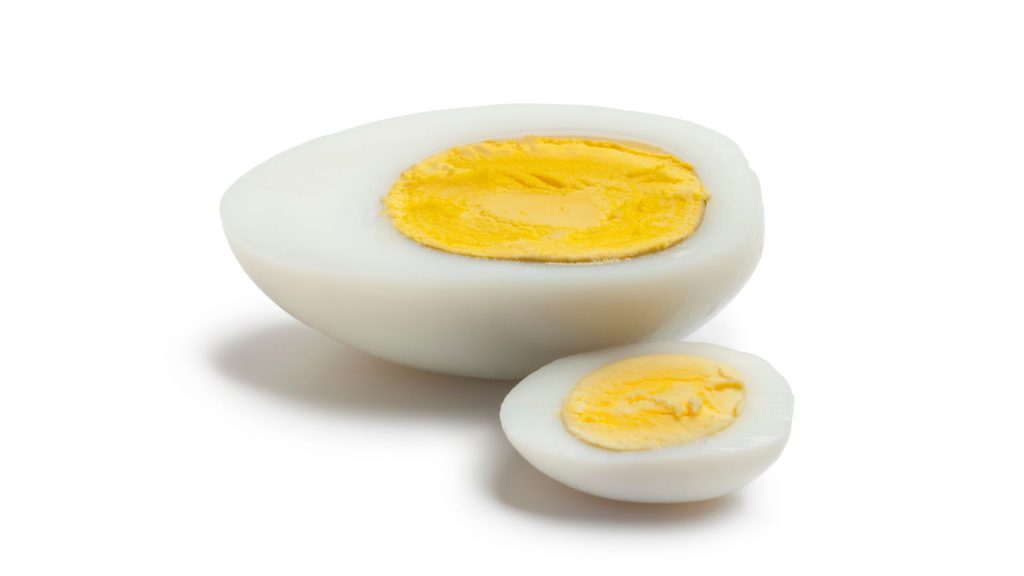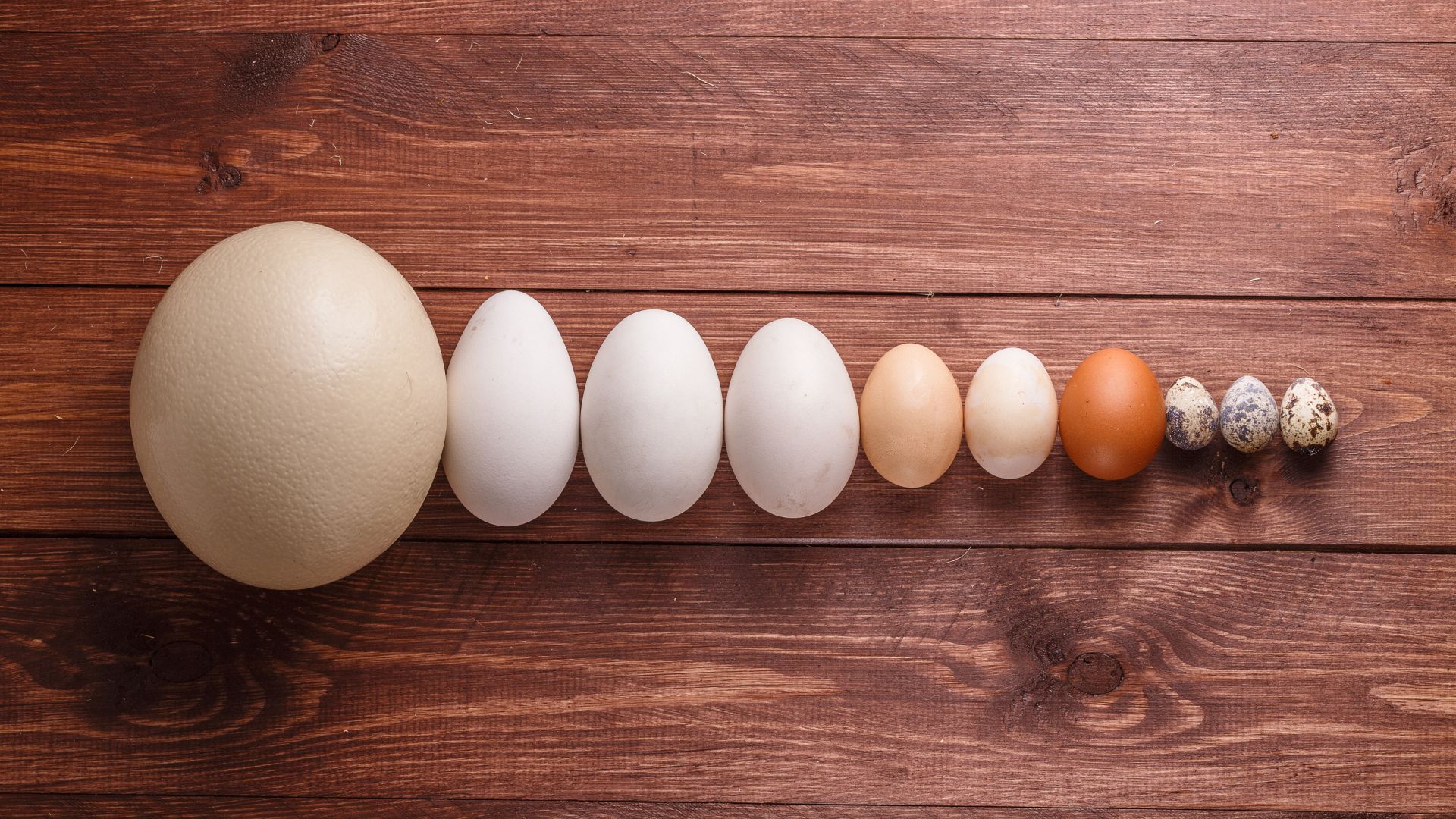If you’re an adventurous foodie or simply curious about expanding your culinary horizons, you might have found yourself wondering, “Can I eat goose eggs?” While chicken eggs are the most commonly consumed type of eggs, there are other varieties out there that may pique your interest. In this article, we’ll look closer at goose eggs and explore whether they’re safe and tasty for human consumption.
What Are Goose eggs?

Goose eggs are eggs laid by geese (obviously). They are larger than chicken eggs, with an average weight of 144 grams compared to 50 grams for chicken eggs. Goose eggs have a thick, hard shell, typically light green or white. The yolk of a goose egg is larger than that of a chicken egg and is deep yellow or orange, while the egg white is thicker and clearer.
Nutritional Value of Goose Eggs
Goose eggs are a rich source of nutrients, including protein, vitamins, and minerals. The table below compares the nutritional value of a 100-gram serving of goose eggs to chicken eggs.
| Nutrient | Goose Eggs (100g) | Chicken Eggs (100g) |
|---|---|---|
| Calories | 185 | 143 |
| Protein | 13.3g | 12.6g |
| Fat | 13.3g | 9.5g |
| Cholesterol | 1020mg | 373mg |
| Vitamin A | 763IU | 487IU |
| Vitamin B12 | 6.48mcg | 1.11mcg |
| Vitamin D | 120IU | 87IU |
| Iron | 3.25mg | 1.75mg |
| Calcium | 41mg | 56mg |
| Phosphorus | 206mg | 198mg |
As you can see from the table, goose eggs are higher in calories, protein, fat, and cholesterol than chicken eggs. However, they also contain more vitamins and minerals, including vitamin B12, which is essential for the nervous system and the production of red blood cells.
It’s worth noting that while goose eggs are higher in cholesterol than chicken eggs, research has shown that dietary cholesterol does not significantly impact blood cholesterol levels for most people.
If you have high cholesterol or a history of heart disease, you should talk to your healthcare provider before adding goose eggs to your diet.
Are Goose Eggs Safe To Eat?

While goose eggs are generally safe to eat when cooked properly, there is a risk of foodborne illness, including salmonella infection. The table below shows the reported cases of salmonella infections linked to goose eggs in the United States from 2010 to 2019, according to the Centers for Disease Control and Prevention (CDC) data.
| Year | Reported Cases of Salmonella from Goose Eggs |
|---|---|
| 2010 | 2 |
| 2011 | 3 |
| 2012 | 5 |
| 2013 | 4 |
| 2014 | 5 |
| 2015 | 4 |
| 2016 | 4 |
| 2017 | 2 |
| 2018 | 3 |
| 2019 | 2 |
As you can see from the table, there have been a small number of reported cases of salmonella infection linked to goose eggs in the United States in recent years.
It's important to remember that not all cases of foodborne illness are reported, so the actual number of cases may be higher. To reduce the risk of illness, it's important to handle and cook goose eggs properly.
How To Safely Cook Goose Eggs

To cook goose eggs safely, you should always wash your hands and any surfaces or utensils that come into contact with the eggs. You should also cook the eggs until the yolk and white are firm, typically taking around 8-10 minutes of boiling or frying.
If you are serving goose eggs raw or undercooked, such as in a salad or tartare, you should use pasteurized eggs to reduce the risk of illness.
In conclusion, while goose eggs are safe to eat when cooked properly, it’s important to be aware of the potential risk of foodborne illness and take steps to minimize it.
Goose Egg Benefits

Goose eggs offer a range of health benefits due to their high nutrient content. Here are some of the potential benefits of consuming goose eggs:
- Rich in Protein: Goose eggs are a good source of protein, with a 100-gram serving providing 13.3 grams of protein. Protein is essential for building and repairing tissues in the body and maintaining healthy skin, hair, and nails.
- High in Vitamins: Goose eggs are a good source of several vitamins, including vitamin A, vitamin B12, and vitamin D. Vitamin A is important for maintaining healthy vision, while vitamin B12 is essential for nerve function and the production of red blood cells. Vitamin D is important for bone health and immune function.
- Rich in Minerals: Goose eggs are also a good source of minerals such as iron, calcium, and phosphorus. Iron is important for carrying oxygen throughout the body, while calcium is essential for bone health. Phosphorus is important for maintaining healthy teeth and bones.
- Boosts Energy: The high protein and nutrient content of goose eggs can help to boost energy levels and combat fatigue.
- Supports Muscle Growth: The high protein content of goose eggs makes them a good food for supporting muscle growth and recovery after exercise.
- Improves Brain Function: The B vitamins in goose eggs are essential for brain function, including memory and concentration.
- Promotes Healthy Skin: The vitamin A and other nutrients in goose eggs can help to promote healthy skin, reducing the appearance of fine lines and wrinkles.
- May Help with Weight Loss: The high protein content of goose eggs can help promote feelings of fullness and satiety, making it easier to maintain a healthy weight.
Overall, goose eggs are a nutritious food that can offer a range of health benefits when consumed as part of a balanced diet.
Goose Egg Disadvantages

While goose eggs offer many health benefits, there are also some potential disadvantages. Here are some of the potential downsides of consuming goose eggs:
- High in Cholesterol: Goose eggs are high in cholesterol, with a 100-gram serving containing around 1,227 milligrams. For some people, consuming high cholesterol levels can increase the risk of heart disease.
- High in Fat: Goose eggs are also high in fat, with a 100-gram serving containing around 19 grams. While some fats are essential for health, consuming too much can lead to weight gain and other health problems.
- Expensive: Goose eggs can be more expensive than other eggs, making them less accessible for some people.
- Not Widely Available: Goose eggs may not be widely available in some areas, making it difficult to include them in your diet.
- Risk of Foodborne Illness: As mentioned earlier, there is a risk of foodborne illness, including salmonella infection, when consuming goose eggs. This risk can be minimized by handling and cooking the eggs properly.
- Not Suitable for Everyone: Some people may be allergic to eggs, which can cause symptoms from mild to severe.
- Larger Serving Size: Goose eggs are larger than chicken eggs, meaning a single egg may provide more calories and nutrients than a chicken egg. This can make it more difficult to control portion sizes and nutrient intake.
In conclusion, while goose eggs offer many potential health benefits, there are also some potential disadvantages. If you’re thinking about adding goose eggs to your diet, it’s important to weigh these pros and cons and consult with your healthcare provider if you have any concerns about how they may affect your health.
Goose Egg Recipes

Goose eggs can be used in various recipes, just like chicken eggs. Here are a few ideas to get you started:
Scrambled Goose Eggs: Scrambled goose eggs are a great way to enjoy their rich, creamy flavor. Simply beat the eggs with a little milk and seasoning, then cook in a non-stick pan until soft and fluffy.
Fried Goose Eggs: Fried goose eggs make a great breakfast or brunch option. Cook them in a little butter or oil, being careful not to overcook them.
Goose Egg Omelette: Use goose eggs to make a delicious and filling omelet. Add your favorite fillings, such as cheese, vegetables, and herbs, for a tasty and nutritious meal.
Quiche with Goose Eggs: In quiche recipes, goose eggs are a great alternative to chicken eggs. Use them to make a savory quiche with cheese, vegetables, and herbs.
Deviled Goose Eggs: Deviled eggs are a classic appetizer that can be made with goose eggs for a unique twist. Mix the yolks with mayonnaise, mustard, and seasonings, then spoon them into the egg whites for a delicious and easy-to-make snack.
Baked Goods with Goose Eggs: Goose eggs can also be used in baked goods, such as cakes and cookies. Use them as a substitute for chicken eggs in your favorite recipes, or try new recipes designed for goose eggs.
With their rich, creamy flavor, goose eggs can be a great addition to many dishes. Experiment with different recipes to find your favorite way to enjoy them.
Where To Find Goose Eggs

Finding goose eggs may depend on where you live and the season. Some farmer’s markets or specialty food stores may carry them, and you can also check with local farms or farmers who raise geese to see if they sell them.
If you cannot find fresh goose eggs in your area, you may be able to find them online from specialty food retailers. It’s critical to ensure the eggs are from a reputable source and shipped and stored properly to ensure their quality and safety.
Remember that goose eggs may be more expensive than chicken eggs, so be prepared to pay a premium if you find them. Also, it’s important to be aware of the potential risks of consuming goose eggs, including foodborne illness, and take appropriate precautions when handling and cooking them.
Goose Eggs and Sustainability

When considering the sustainability of consuming goose eggs, there are a few different factors to consider.
First, geese are generally hardy birds that can thrive in various environments and are often raised on small farms or in backyard settings. This means they may have a lower environmental impact than other livestock types, such as cattle or pigs.
However, it’s important to note that geese may still require significant resources, such as feed, water, and land, to raise.
Additionally, their larger size and slower maturation time mean that they may not be as efficient at producing eggs as chickens, which could impact their sustainability from an economic perspective.
Overall, the sustainability of consuming goose eggs will depend on various factors, including how the birds are raised, their impact on the environment, and their efficiency at producing eggs.
If you want to incorporate goose eggs into your diet, consider seeking local or sustainably-raised options and supporting farmers who prioritize sustainable practices.
Conclusion

In conclusion, goose eggs offer a range of health benefits and are a nutritious food that can be a part of a balanced diet. They are a rich source of protein, vitamins, and minerals and can help boost energy levels, support muscle growth, and promote healthy skin.
However, it is essential to cook them properly to avoid the risk of foodborne illness, including salmonella infection. Moreover, they are high in cholesterol and fat and can be more expensive than other eggs, making them less accessible for some people. Therefore, it is crucial to consider the potential risks and benefits of consuming goose eggs when incorporating them into your diet.
